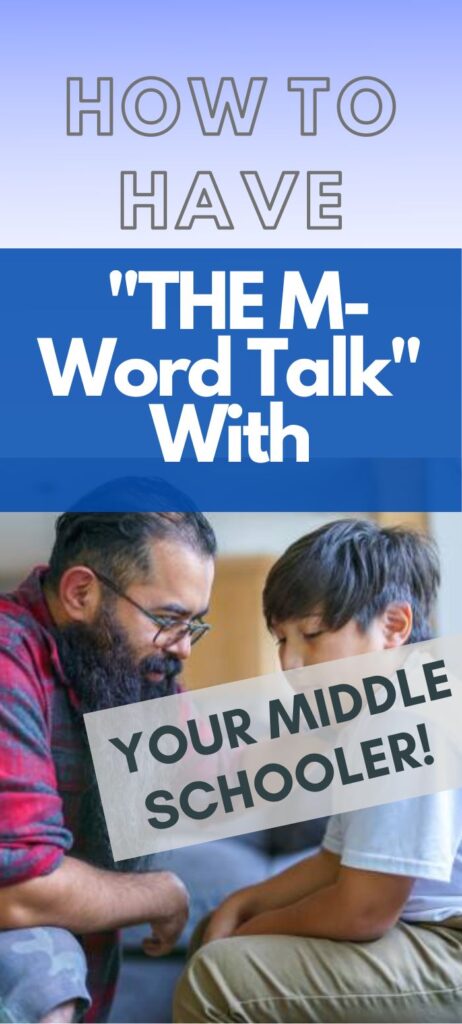
Having “The Talk” with your child can be intimidating on many levels. Maybe your parents didn’t do a good job of describing how sex, hormones, and biology worked as you got older. However, in today’s culture, it’s important to arm your child with information that comes from you and not the internet. The reason being is the law of First Mention. The law of first mention is whoever mentions an idea first, all other information will be measured against the information first given. If you are the first contact for your child to understand the role of sex, and how their bodies work as they get older all the other information (which doesn’t have their best interests at heart) will be measured against what you originally said.
Masturbation is a topic that many parents are embarrassed to approach with their children. Whether you catch them in the act awkwardly or they hear about it from their friends it’s not a topic that you usually discuss with your middle schooler until confronted with it and even then maybe not. There’s a need for safety to be discussed as well as what’s the goal.
As a previous foster parent, I know a lot of children who come from abuse will masturbate for comfort reasons. It can become addicting and because it’s not addressed can happen at inappropriate times or places. When kids get upset they can often run to masturbation to feel a sense of comfort and control. With children who don’t come from abuse curiosity can cause them to explore their bodies as they mature. When addressing this very personal and private practice it’s important to cover a few points with your child.
- Family culture: What are your family values around masturbation? When you have established through a set of religious, cultural, or ethnic norms what your values are communicate these values with your child in a way they will understand. Don’t bring shame to the topic but information and reasons why you value what you value.
- Privacy: Masturbation is a private matter. It’s a personal exploration of your own body and should be kept in private settings. You as a parent no matter how much you want them to just never know about this will eventually realize they will at some point explore their body and need to have some good information so they don’t hurt themselves. One piece of information is that masturbation shouldn’t be happening in school or public settings. It’s for private places like bedrooms or showers. If you want to put rules around privacy as a parent this is a place where you can instill house rules.
- Health: How can you make sure that you are safe and healthy when masturbating? One discussion is about health and safety. Washing hands or tools to make sure there aren’t infections or diseases that are being transferred is a very important piece. Also if your child comes across parents’ sex toys it’s inappropriate for them to use that. Make sure that they know there can be some not-so-fun STDs that can be transferred through bodily fluids and it’s inappropriate to use other people’s toy
- Reasons why: Help to create an awareness in your child about how they are feeling when they feel the urge to masturbate. Talk to them about hormones and how as we get older the urges that we feel are our body’s way of telling us that we are ready to make babies. Do they feel the need to masturbate when they are sad, lonely, or upset? Is there something else that they can do to express their emotions or a different way they can bring comfort without masturbating?
- Addiction: Talk about the addictive nature of masturbation and how it can become an excuse to disconnect from relationships in the future and can hinder true connection with other people. When we choose to isolate and comfort ourselves through self-pleasure we will disconnect from our learning process. By being with other people who can meet our loneliness need or help us process emotional times we can learn relational skills that will benefit us throughout our life.
All of these points are important when talking about masturbation with your middle schooler. It can be a daunting task to talk with your child about this topic but the benefits will outweigh the awkwardness. For another article on how to have “The Talk” with your middle schooler check out the link below.
If you want a FREE GIFT sign up below!
